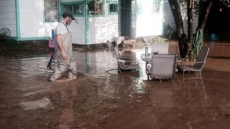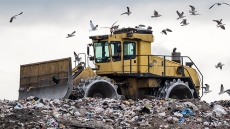VANCOUVER — New research debunks the supposed mental health benefits of eating your own placenta.
The University of British Columbia and the BC Mental Health and Substance Use Services' Research Institute says their study found no difference in the mental health of mothers who had eaten their placenta versus those who had not.
The data came from a 10-year genetic study involving 138 women with a history of mood disorders, including depression and bipolar disorder. Lead investigator Jehannine Austin says the comparison took into account a mother's psychiatric diagnosis and medication use, as well as age and income level.
She says moms who had consumed their placenta did not have more energy, had no increase in their vitamin B12 levels, and required no less help breastfeeding than those who had not consumed their placentas. She adds that eating one's placenta also did not appear to worsen mental health.
Nevertheless, Austin discourages the practice in light of Health Canada's warning late last year that it could lead to bacterial or viral infections in mothers or their babies.
Austin's study was published online today in the Journal of Obstetrics and Gynaecology Canada.
Proponents of human placenta preparations believe it helps prevent postpartum depression, overcome anemia, increase energy levels and boost breast milk production.
Celebrities including Kim Kardashian, Alicia Silverstone and Hilary Duff are among the famous moms who have popularized the trend, in which the organ is sometimes dehydrated and put into capsules, but it has drawn increasing scrutiny in the medical community.
"People are taking them because they see celebrities in the news doing it and they talk about their experience with doing it and so other women think, 'Oh that sounds like a good idea,'" said Austin, executive director of the research institute and a professor in medicine at UBC, in a phone interview Thursday.
"But the point that we're trying to really make, having analyzed our data, is that there's no evidence from our study to suggest that this actually helps in any way.
"It doesn't help with mood, it doesn't help with energy, it doesn't help with nutrition levels and it doesn't help with breastfeeding."



